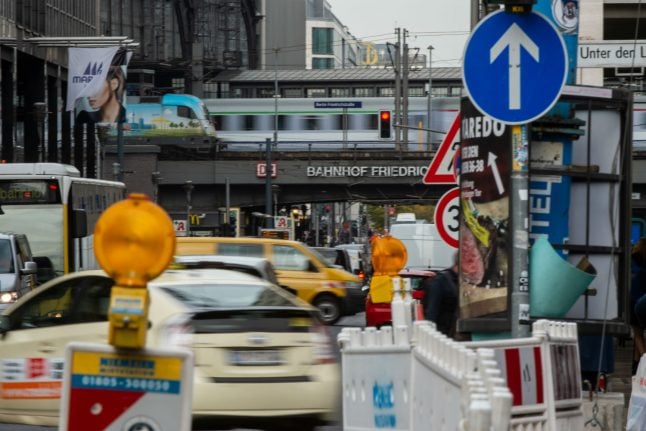Speaking a day after a court in Essen became the first to order that sections of a major western highway be closed to older diesel vehicles, Andreas Scheuer lashed out at the “disproportionate” ruling.
“Judgements like these endanger the mobility of hundreds of thousands of citizens. Nobody understands this self-destructive debate,” Scheuer told Bild daily, adding that such bans “were unheard of in the rest of the world”.
The latest ruling follows a string of similar decisions ordering cities like Berlin, Cologne, Frankfurt and Stuttgart to bar the most polluting diesels from certain areas, alarming drivers nationwide.
SEE ALSO: Germany eases diesel vehicle bans, angering environmentalists
A transport ministry spokesman said the debate had become “highly emotional” in the car-loving nation where the auto industry is a pillar of economic growth and employs some 800,000 people.
“Closing motorways deprives our country of mobility,” the spokesman told reporters.
“Mobility is the foundation of our prosperity, of our growth, of employment. That's what we mean by self-destructive.”
The government in Berlin has found itself under mounting pressure to take action against the looming bans, which have been spurred by the car industry's “dieselgate” emissions cheating scandal.
The scam, first exposed at Volkswagen in 2015, for years allowed cars to spew far more harmful nitrogen dioxide (NO2) than legally allowed, significantly contributing to German cities' chronic air pollution.
Scrambling to ward off the bans, the government has sought to get German carmakers Volkswagen, Daimler and BMW to pay for hardware retrofits to clean up engines but the powerful car titans have only made limited concessions so far.
On Thursday, the cabinet moved to change legislation to prevent driving bans in some cities.
In measures still to be approved by parliament, Berlin wants to soften the threshold for implementing a driving ban, currently set at the EU-agreed limit of 40 micrograms of NO2 per cubic metre.
Berlin says cities where pollution levels are between 40 and 50 micrograms should be exempt from any bans, sparking outrage from environmentalists who accuse the government of circumventing EU law.



 Please whitelist us to continue reading.
Please whitelist us to continue reading.
Member comments